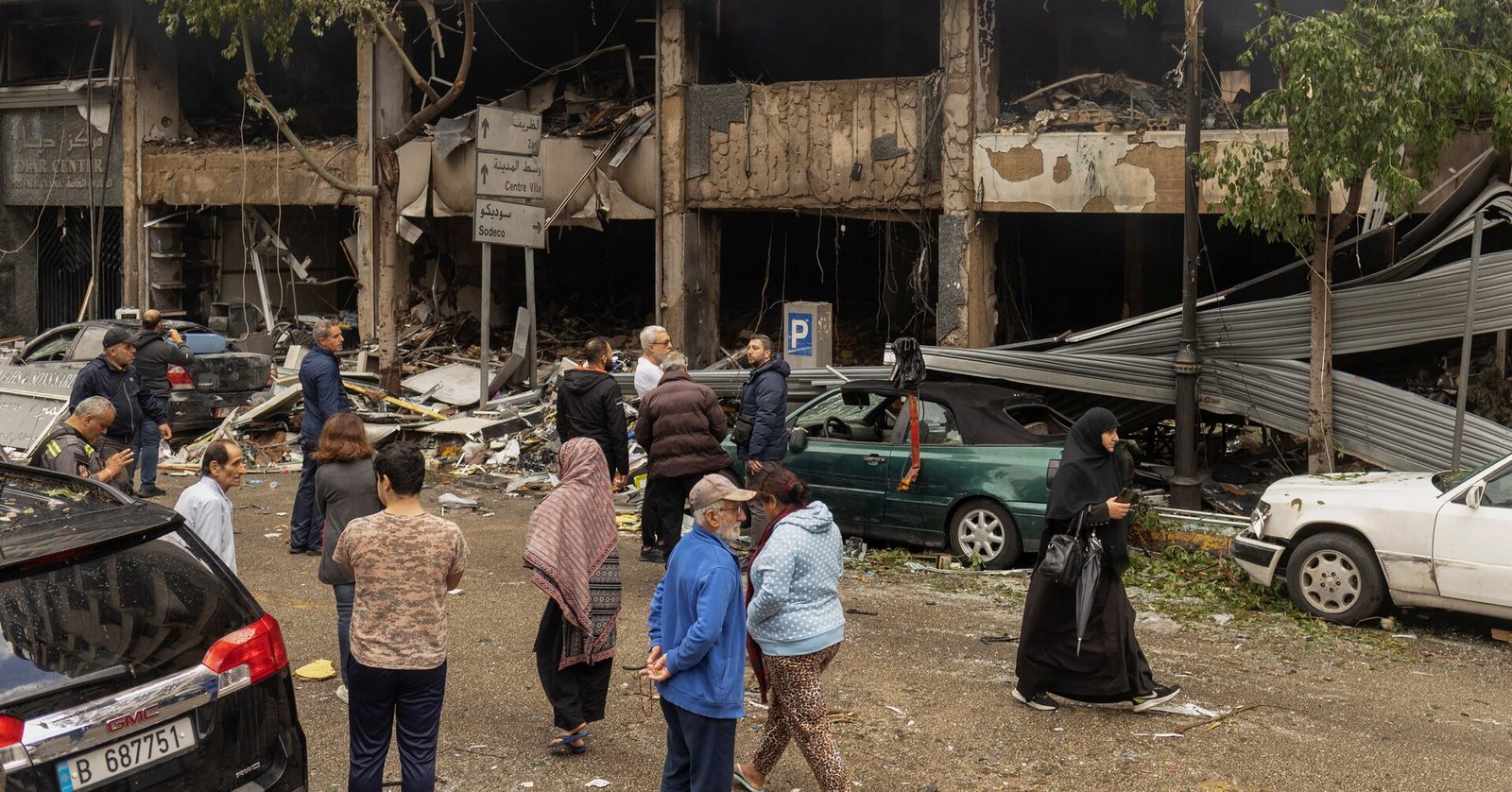Item 1 of 2 People gather in front of a damaged building in the aftermath of an Israeli strike, amid the ongoing hostilities between Hezbollah and Israeli forces, in Beirut’s Mar Elias street, Lebanon November 18, 2024. REUTERS/Adnan Abidi
[1/2]People gather in front of a damaged building in the aftermath of an Israeli strike, amid the ongoing hostilities between Hezbollah and Israeli forces, in Beirut’s Mar Elias street, Lebanon November 18, 2024. REUTERS/Adnan Abidi Purchase Licensing Rights, opens new tab
BEIRUT, Nov 18 (Reuters) – The U.S. official overseeing contacts to secure a ceasefire between Israel and the Iran-backed Hezbollah in Lebanon is due to visit Beirut on Tuesday, sources in Lebanon said on Monday, with Beirut expected give its response to a U.S. truce proposal.
The U.S.-led ceasefire diplomacy has come back into focus as Israel has been stepping up its offensive: Israeli strikes in two Beirut neighbourhoods killed six people including at least one senior Hezbollah official on Sunday, the first time Israel has struck central areas of the capital in a month.
The new U.S. truce proposal was delivered last week to Lebanese Parliament Speaker Nabih Berri, who has been endorsed by Hezbollah to negotiate.
White House envoy Amos Hochstein was expected in Beirut on Tuesday for talks on the ceasefire, a Lebanese political source told Reuters. Lebanese media outlet Voice of Lebanon also reported the visit, citing Lebanese lawmaker Kassem Hashem, who is part of Berri’s parliamentary bloc.
World powers say a Lebanon ceasefire must be based on U.N. Security Council Resolution 1701 which ended a 2006 war between Hezbollah and Israel. Its terms require Hezbollah to move weapons and fighters north of the Litani river, some 20 km (30 miles) north of the border.
The diplomacy has been complicated by an Israeli demand for the freedom to act should Hezbollah violate any agreement, which Lebanon has rejected.
Israel launched its offensive after almost a year of cross-border hostilities with Hezbollah. Its declared goal is to secure the return home of tens of thousands of Israelis forced to evacuate the north due to rocket fire from Hezbollah, which opened fire in solidarity with its ally Hamas as the Gaza war got underway more than a year ago.
The Israeli campaign has uprooted more than 1 million people in Lebanon. Israel has dealt Hezbollah heavy blows, using airstrikes to pummel wide areas of Lebanon and sending ground forces into the south.
Sign up here.
Reporting by Maya Gebeily; Writing by Tom Perry; Editing by Ros Russell
Our Standards: The Thomson Reuters Trust Principles., opens new tab
